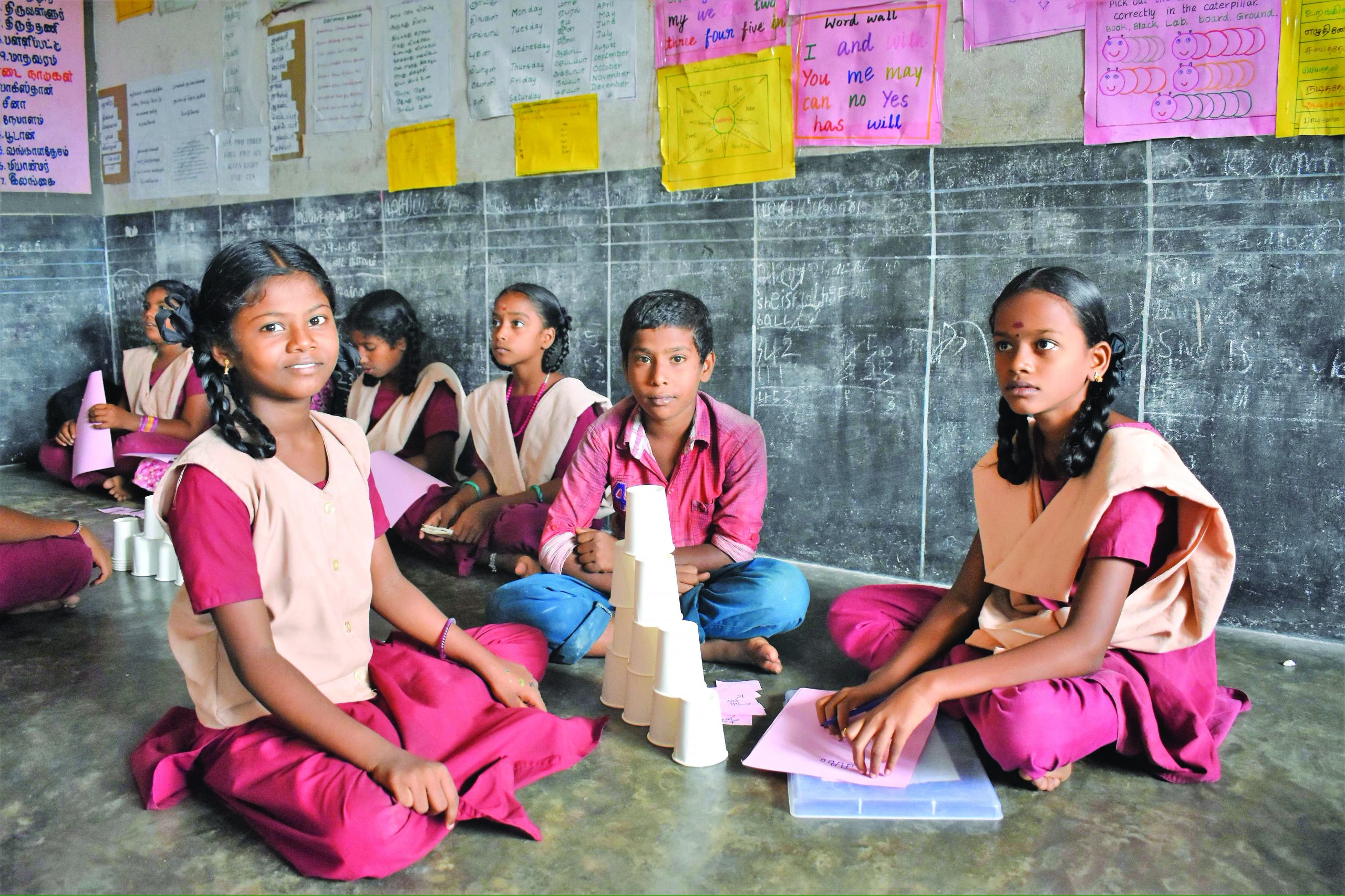Shivani Chaturvedi (Chennai)

Government school children in Tamil Nadu
In the popular imagination, the peninsular state of Tamil Nadu (pop.68 million) is India’s most educated state churning out lakhs of well-educated doctors, engineers and scientists year on year. Therefore, a big slippage in school learning outcomes in the Union ministry of education’s Performance Grading Index (PGI) 2021-22, released on July 8, which ranks the state among the bottom 10, has come as a big shock to all in this southern state. This is a significant drop from being among the Top 5 states at Level II in the PGI 2019-20 to Level III in 2021-22.
PGI assesses the performance of school education systems in states countrywide. It was revised in 2021-22 and renamed PGI 2.0, with the new assessment structure including 73 parameters grouped into two categories: Outcomes and Governance Management. The outcomes category includes access, infrastructure and facilities, equity, and outcomes. The governance management category includes teacher education and training.
In PGI 2021-22, under the head of learning outcomes — “the most important and ultimate goal of the index” — Tamil Nadu is awarded a score of 41.20 out of 240 — the lowest among all states and Union territories collated from the National Achievement Survey 2021. Under the parameter of access, it is ranked among the Top 8 with a score of 66.16. Under infrastructure and facilities among the Top 10 (93.48); equity #2 (229.25); governance and processes among Top 13 (77.87); teacher education among the Top 5. Its overall score aggregates 590.4 which places it in Level III.
The state’s low Level III ranking has stunned academics — even if not politicians — in Tamil Nadu, especially its lowest score under learning outcomes. According to them, a major factor that has contributed to the state’s poor performance is the quality of teaching. A study conducted by the National Council of Educational Research and Training (NCERT) last year found the quality of teaching in Tamil Nadu below average. The state, at 29 percent, fell behind most in numeracy skills and had the maximum number of students unable to complete basic grade-level tasks. The NCERT study also found that many teachers in Tamil Nadu are not adequately trained, and don’t have the resources to teach effectively. Another reason for Tamil Nadu’s slip in the PGI 2021-22 is shortage of teachers in government schools.
“Inadequate number of teachers in government-run schools is a prime cause of the state’s abysmal learning outcomes rank. In 28,000 primary and upper primary government schools statewide, over 50,000 teaching posts are vacant. There is only one teacher in 3,800 primary schools (upto class V) and only 2.5 teachers (on average) in the remaining 25,618 primary and middle schools across the state,” says S. Gnanasekaran, general-secretary of the Tamil Nadu Higher Secondary School Headmasters Association.
Under provisions of the Right of Children to Free & Compulsory Education (RTE) Act, 2009, there should be one teacher for every 30 students. Nor is this a problem peculiar to Tamil Nadu — 18 percent of teachers posts in government primary schools and 15 percent positions in secondary — schools are vacant nationwide.
Prince Gajendra Babu, general-secretary of the State Platform for Common School System, ascribes the state’s demotion to teachers being burdened with administrative duties. “Not only are there huge teacher vacancies, teachers are entrusted with a wide range of administrative duties. These duties take up teachers’ time and affect their ability to teach properly. This in turn adversely affects students’ learning outcomes. The learning loss students suffer is massive,” he says.
The DMK government’s interference and exceptionalism in education hasn’t helped matters. The state government has objected to national entrance exams such as NEET (National Eligibility cum Entrance Test) for medical education and CUET (Common University Entrance Test) for Central universities, as also NEP 2020, and has appointed a committee to write its own SEP (State Education Policy). Then there is insistence on teaching all higher education courses — including engineering — in Tamil, to accommodate ‘weak’ rural students. It’s all adding up.























